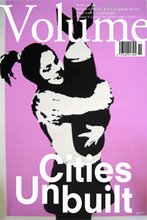Blowback: Israel's bogus narrative on Palestinian refugees
Los Angeles Times - Ghada Karmi April 12, 2011
Ghada Karmi, author of "In Search of Fatima: A Palestinian Story," responds to The Times' April 7 article on Lifta, the last intact pre-1948 Palestinian village. If you would like to write a full-length response to a recent Times article, editorial or Op-Ed, here are our FAQs and submission policy.
What a timely article, “Israel and Palestinians have conflicting visions for village's future.” April is a good month for recalling the abandoned homes, towns and destroyed villages of what was once Palestine. It was the month in which my own family was forced to leave our home in Jerusalem. Contrary to the official Israeli version, still largely believed, that the Palestinian exodus of 750,000 people -- without which there would be no Israel today -- happened in the fog of war, people like me are living proof that many of us had been forced out of our homeland months earlier.
The Israeli version claims that during the 1948-49 Arab-Israeli war, the Palestinians fled, as happens in wars everywhere, or were panicked into leaving by their leaders. For more than 60 years, this has served to absolve Israel of its culpability for that tragedy.
In fact, between January and May 1948, thousands of us were already leaving because of the violence and the deliberate tactics of the Jewish leadership intent on creating an empty space in which to erect a state. As a child, I remember seeing a poor Bedouin man walking down our street shot dead by Jewish snipers from an empty house opposite ours.
The people of Lifta (the village that The Times features), which is just three miles from my old neighborhood in west Jerusalem, were already fleeing in December 1947. The Jewish paramilitary organization Haganah and the Stern Gang, a Jewish dissident group, attacked the villagers with guns and hand grenades. By February 1948, most houses on the edge of the village had been demolished; the inhabitants fled in terror.
The same fate was intended for Katamon, where we lived. Increasing attacks on our street and its vicinity had the same desired effect as in Lifta. After January 1948, when the Semiramis Hotel on a street near ours was bombed by the Haganah, killing 26 people (a nightmare of horror that I dimly remember), the attacks against our neighborhood escalated. Families started leaving, fearful for their children and believing it would be a temporary evacuation. By the time we left, hardly any of our friends remained. The increasing danger around us forced my parents to leave. We took nothing with us, convinced it would not be long before we returned.
Terrible as this was when I look back, at least our street and our house still stand today. They were taken over by Jewish settlers and underwent various changes, but they largely remain. Yet I do not know which is worse: the hundreds of Palestinian villages Israel wiped out after 1948 and whose previous inhabitants can only hope to find through faded memories; the dozen villages left such as Lifta, still standing but ruined and depopulated; or, as in my case, my house being in the possession of strangers (New York Times correspondent Ethan Bronner lives in an upper story added on later), who do not recognize my history or my right to my family home.
On setting up its state in 1948, Israel set about demolishing every vestige of Palestinian life and history in the land. The physical destruction of the villages, the replacing of Palestinian names with Hebrew ones and the wholesale takeover of Palestinian culture, whether in food -- "Israeli falafel" -- or in the traditional Arab dabke dance, renamed the Israeli "hora," were all aimed at making the world forget there had ever been anyone other than Jews in the Holy Land.
Through the work of Israeli filmmaker Benny Brunner, I have discovered another refinement of this cultural theft: the takeover of private Palestinian book collections, including ours. After 1948, Israeli officials took what books they found from abandoned Palestinian homes. Tens of thousands were looted in this way. Some of them remain in the Israeli National Library today, designated abandoned property. Brunner is currently making a film of this, "The Great Book Robbery."
Palestinians have never accepted our enforced oblivion. We are fighting to tell our history, win a future of political freedom and secure the return of refugees forced from their homes and never allowed to return. For these reasons, the battle to preserve Lifta must be won -- its remains a physical memorial of injustice and survival.
Subscribe to:
Post Comments (Atom)

No comments:
Post a Comment